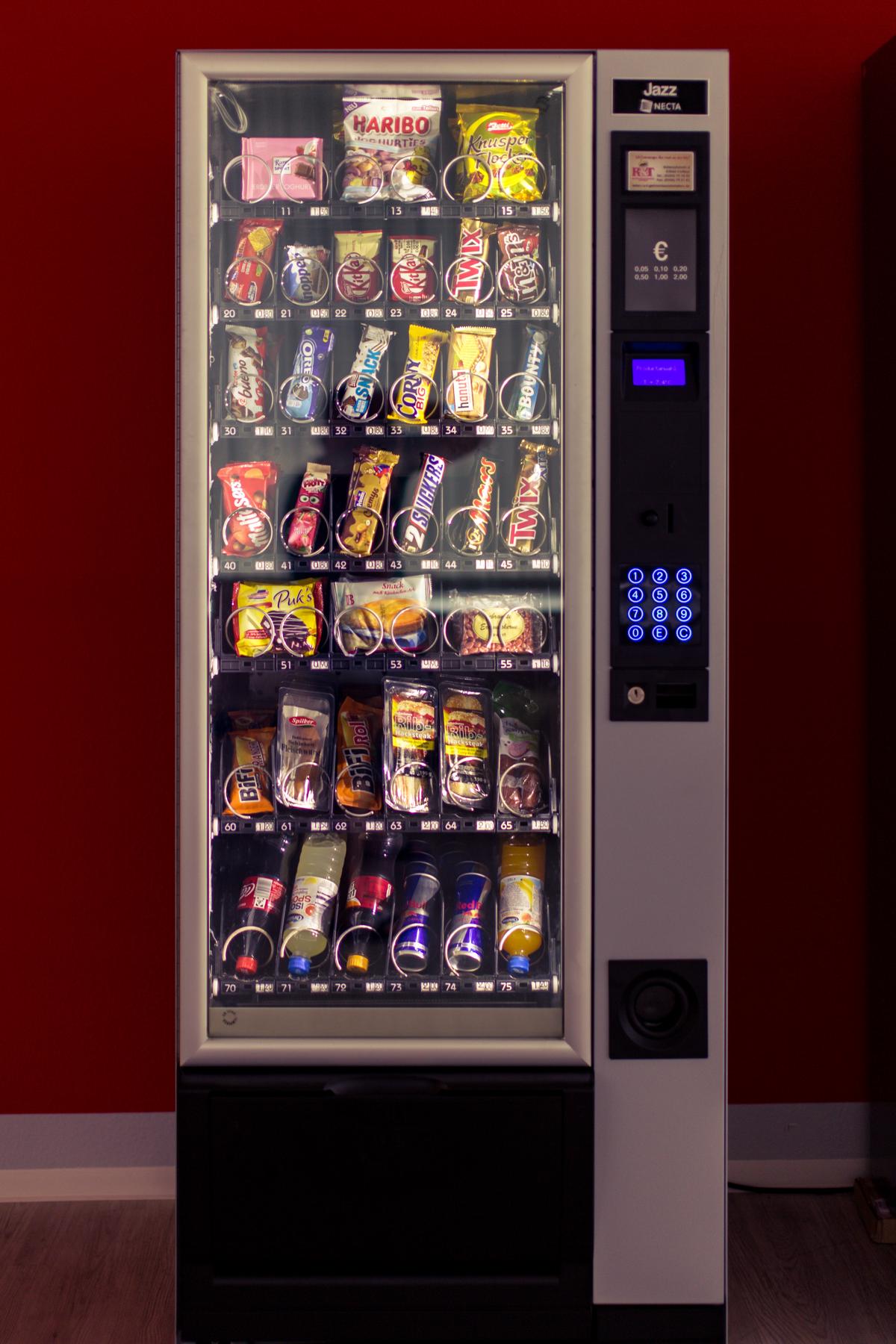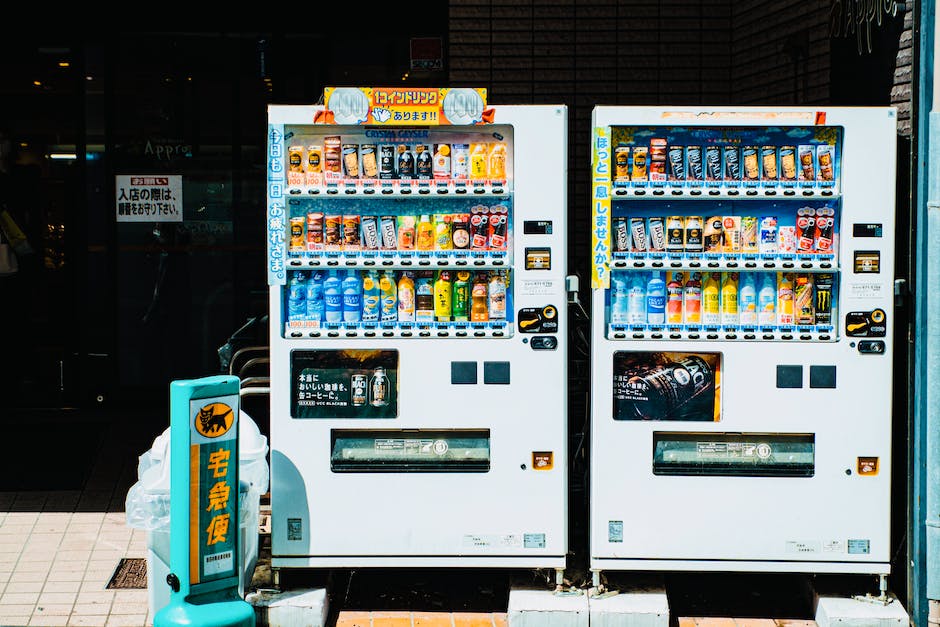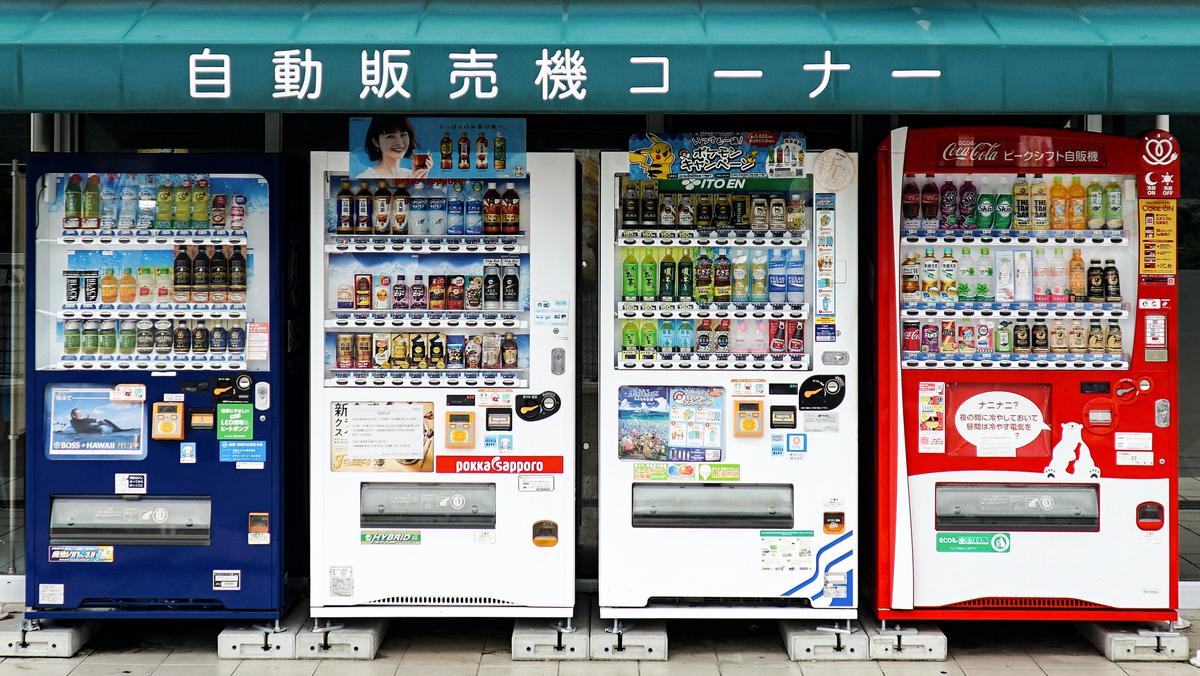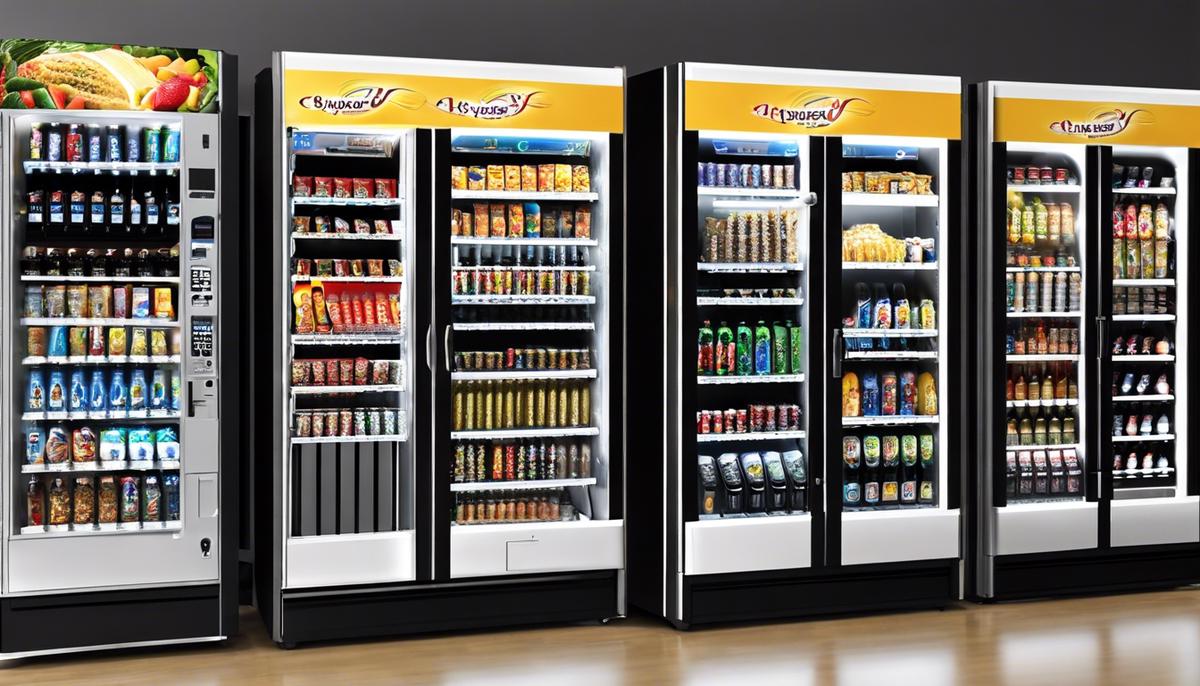There’s much more to vending machines than just inserting a coin, making a selection, and waiting for a product to drop. Vending machines represent a thriving industry with unique opportunities for profit and growth. They could be seen in various locations, satisfying a wide range of consumer needs with their convenience and ease of operation. From understanding the mechanics of vending machines as a business, evaluating various types, exploring pricing strategies, and learning how income is generated, this exploration provides a comprehensive view into the vending machine industry. Moreover, we delve into crucial aspects like sourcing and placement, and the essentials of machine maintenance and relationship building with location owners, thereby giving you valuable insights into inaugurating and running a successful vending machine business.
Understanding Vending Machine Business
Vending machines, those unsung heroes of the quick snack world. They’re everywhere—in office buildings, malls, schools, or airports—you name it. But have you ever stopped to wonder how these machines generate profits for those who own and operate them? Unleashing the entrepreneurial spirit within us, let’s delve into the business model for a vending machine, a simple yet ingenious amalgam of convenience, accessibility, and practicality.
The Core Concept
Let’s start by understanding the core concept of this venture: selling packaged food, beverages, or even non-edible items like toiletries or books, to consumers in exchange for money. The true beauty of a vending machine rests in its simplicity. It’s a standalone, self-sufficient business that operates 24/7 without the need for customer service staff or shop keepers to manage daily sales operations.
Revenue Streams
The vending machine’s business model pivots on two primary revenue streams: product sales and advertising. Yes, advertising—because those glossy images on the machine aren’t just for looks. They’re revenue-driving advertising space that can be leased out to companies wanting to promote their products.
Direct Sales
The direct sale of products is the obvious and most common source of income. Once the machine is stocked with products—be it chocolate bars, fizzy drinks, or handy stationery—the consumers deposit money, make their selections, and the machine dispenses the chosen item.
Dynamic Pricing
An entrepreneur may also operate their machine using dynamic pricing. This involves adjusting the prices based on demand or other external factors. For instance, a soda might be priced higher on a scorching afternoon compared to a cool evening.
Sponsored Advertising
Next up is vending machine advertising revenue. Savvy entrepreneurs will make use of the machine’s exterior, exploiting every square inch for advertising partnerships. Brands can pay to have their products showcased prominently on the machine, thereby increasing their visibility and potentially their sales.
Ancillary Benefits
While not direct revenue sources, there are ancillary benefits to running a vending machine business. For instance, property owners might welcome the placement of vending machines on their premises. Why? For the convenience they provide to their patrons. Therefore, these units may even act as indirect marketing tools, potentially attracting more foot traffic to a particular location or venue.
The Cost Structure
The business model of a vending machine isn’t complete without addressing the cost structure. Expenses typically include purchasing or leasing the machine itself, maintenance and repair, restocking inventory, and potential location fees. However, the majority of these costs are upfront investments and operating expenses, like restocking, tend to be nominal.
The vending machine business model revolves around convenience and adaptability. A successful vending machine business entrepreneur knows how to source the right products, find the right locations, and leverage their mobile real estate. Ready to take the plunge? Remember, with good business acumen and a savvy entrepreneurial spirit, those coins will start adding up in no time. It’s time to expand your portfolio and embark on this fascinating journey.
Innovation, convenience, and profitability—all housed within a single vending machine. It’s just awaiting your seal of approval.

Photo by redaquamedia on Unsplash
Sourcing and Placement
Maximizing Your Vending Machine Profits: Location, Location, Location!
Harnessing the full potential of your vending machine venture is reliant on a multitude of factors. However, the key to garnering substantial profits lies in arguably one element above all others: Location. Precisely where you install your vending machines truly sets the stage for the level of your success.
Identifying high-traffic areas is crucial. You can own a machine stocked with popular, high-demand products but without potential customers in the vicinity, your sales will undoubtedly falter. Thus, exploration of bustling public places is a logical starting point. Consider locations such as shopping malls, transit stations, airports, and hospitals. These places see a steady stream of individuals throughout the day and therefore offer greater opportunity for sales.
While pedestrian traffic is a pivotal variable, understanding the demographic makeup of these areas is equally vital. A machine placed at a gym might fare better selling health-conscious snacks and drinks, while a machine in a school, might find success with a combination of stationary and snack items. Matching the inventory to the environment can significantly optimize sales.
In addition, striking gold with complementary businesses can forge a lucrative partnership. Instances of this may include a vending machine at a laundromat, offering snacks and entertainment options for patrons waiting for their laundry, or at a mechanics’ garage, providing refreshments to customers waiting for car repairs. In this mutually beneficial scenario, your vending machine can contribute towards enhancing overall customer experience while boosting your revenue.
Leverage strategic placements in offices and factories too. Research indicates significant sales possibility within these frameworks, particularly if operating hours exceed the typical nine to five. Employees looking for a quick snack during breaks or late-night shifts can contribute significantly to your revenue stream if you’ve anticipated their needs correctly.
Lastl y, don’t undervalue the aspect of convenience. Ensure that the placement of your vending machine allows comfortable and hassle-free access to customers. Hidden corners or overly crowded spots may deter potential sales. Visibility and accessibility are just as important as the venue itself.
Remember, the vending machine business, similar to real estate, thrives on the mantra “Location! Location! Location!” With methodical planning and strategic placement, you’ll set the groundwork for a successful, profit-driving venture ready to address the convenience needs of a variety of customers. It’s an exciting industry to step into, ripe with innovation and potential growth. Make sure you position yourself well both literally, in terms of your machine locations, and figuratively, in the depth and breadth of your business foresight. The market is waiting, so choose your spots and make your entrepreneurial move!

Maintenance and operation
Perfecting the Art of Vending Machine Operation and Maintenance
Operating a vending machine business effectively requires a multi-disciplinary approach. Entrepreneurs must understand mechanical repairs, efficient stock management, and pore over voluminous data to ascertain customer preferences and peak usage times. The ultimate aim? Balancing excellent customer service with ensuring a positive bottom line.
Regular Maintenance: The Key to Longevity
Vending machines, like all mechanical equipment, need regular maintenance. Skipped checks lead to machine malfunctions, resulting in lost sales and negative customer experiences. On an operational level, routinely inspect machines for clean, functioning bill acceptors, coin mechanisms, and temperature settings in refrigerated units.
Invest in Software Solutions for Greater Efficiency
Invest in a modern vending machine management system for an efficient operation. These software tools provide a wealth of actionable real-time data. They help businesses keep track of stock levels, product mix, and sales trends, reducing product expiration levels and promoting efficient restocking activities.
Data-Driven Decision Making: Adjusting to Changing Market Conditions
The role of big data in modern business operations cannot be overemphasized. It holds true in the vending machine space where these data, acquired from software management systems, help owners make intelligent decisions. Stocking products that reflect the popularity patterns and replacing those that have dwindling demand imparts a dynamic feel to the business, ensuring loyalty from customers.
Engaging with Local Businesses: Discovering New Locations
Leverage the local business network to discover untapped locations. By engaging with business owners that attract similar demographics, profitable partnerships propel the vending machine business to higher profitability levels. Placements in offices and factories – places that often tighten pantry budgets – present a promising market for vending machine entrepreneurs.
Positioning: The Real Estate of Vending Machines
The old real estate adage, “Location, Location, Location,” rings true for vending machines. High-traffic locations attract a larger customer base, boosting sales. However, it’s crucial to consider the demographic makeup of these areas. Understanding the tastes and preferences of different customer segments allows for a tailored inventory to maximize sales.
Looking Forward: Embracing Innovation
While the vending machine business might seem traditional, it is far from static. Innovations – such as touch screens, cashless payments, and smart refrigeration – can attract a more diverse customer base and reduce operational costs. Stay nimble and embrace the wave of innovation to keep the business a step ahead of the curve.
In conclusion: Success in the vending machine business is no game of chance. From machine maintenance to sophisticated data analyses, it requires diligence, knowledge, and a keen nose for identifying opportunities. It certainly is a business for the dedicated and proudly resourceful.

Photo by zzidolist on Unsplash
Transforming a simple concept of coin-operated convenience into a profitable venture requires a significant understanding of the vending machine business. From choosing the right goods to sell, securing optimal locations, setting strategic prices, to ensuring regular machine maintenance and fostering positive relations with location owners.
Conclusion
When correctly incorporated, these factors can contribute to a prosperous business. The vending machine industry is not just about selling products; it denotes an intricate web of strategic decisions and operations. With this comprehensive knowledge, you are well-equipped to venture into the complexities and joys of running a successful vending machine business.

